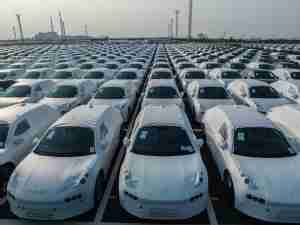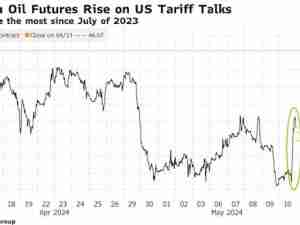Brazil automakers expect small rebound from 2014 slump
By: Reuters | Jan 08 2015 at 05:35 PM | International Trade
Automobile production in 2015 in Brazil will likely barely recover from a sharp plunge last year, as weak sales and exports drag on an industry quickly shedding jobs.
Anfavea, the national automakers association, on Thursday forecast a 4.1 percent rise in vehicle output this year after a 15.3 percent drop in 2014 due to tighter credit, shaky consumer confidence and expiring tax breaks. Output rose 10 percent in 2013.
Anfavea expects flat sales in 2015 after a 7.1 percent slump last year and sees exports edging up just 1.0 percent after a 33.1 percent plunge in 2014.
Brazil is one of the world's five biggest auto markets and a major base of operations for Fiat Chrysler Automobiles , Germany's Volkswagen and U.S.-based General Motors Co and Ford Motor Co.
The prospect of another weak year for Brazil's auto industry is adding to headaches for President Dilma Rousseff as she struggles to get Brazil's economy growing again without the fiscal stimulus used in recent years.
Rousseff had offered cheap credit and tax breaks to protect manufacturing jobs and prop up the industry since 2012, but slumping demand and deteriorating government accounts have caught up with the president, who finally axed the incentives.
Payrolls in the sector dwindled 8.9 percent last year, and Volkswagen AG and the Mercedes-Benz truck unit of Daimler AG have cut more than 1,000 jobs in Brazil over the past week.
The layoffs threaten to increase Brazil's unemployment rate from near record lows, undermining one of the few bright spots in an economy that has posted mediocre expansion for three straight years but kept families' paychecks growing.
Anfavea President Luiz Moan said carmakers with domestic operations were hoping a weaker Brazilian currency would reduce the appeal of imported cars, allowing local factories to lift production in a flat market.
Fenabrave, Brazil's dealership association, had a more somber outlook, forecasting on Tuesday that sales would slip 0.5 percent in 2015, dropping for the third straight year.
Year-end holidays triggered a 23.1 percent drop in output in December from November, while remaining incentives in the month boosted sales by 25.6 percent.
Still, the overall slump in 2014 resulted in the lowest sales and production since 2009. (Reuters)








